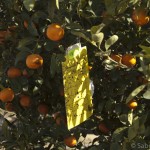
Tulare County saw an increase in Asian citrus psyllid (ACP) activity with several trap detections and one location raised some concerns with the California Department of Food and Agriculture.
Tulare County Agricultural Commissioner Marilyn Kinoshita released her updated ACP spreadsheet which showed an increase in trap detections over the last month or so. A trap location in Tipton near a large juice plant that originally saw activity in 2013 contained an unusually high number of psyllids.
There are reports of several life stages of ACP at the Tipton location and the California Department of Food and Agriculture says it is planning to treat the trees and have the juice plant remove them, taking samples for lab analysis.
Kinoshita says several of the finds in her county are located along the Highway 99 corridor leading her to believe that these pests are getting some help spreading up the state.
Tulare County ACP Update
From the Citrus Pest and Disease Prevention Program: There have been 17 Asian citrus psyllid finds in various parts of Tulare County recently, bringing the county-wide total to 384. The finds were mostly in residential areas in the county, but several were from groves and a juice plant. The Tulare County grower liaisons are working with grove owners to address the finds in and near commercial groves.
The Citrus Pest & Disease Prevention Program asks growers to remain diligent and monitor their groves regularly for the pest. Growers are urged to employ field scouts if they need help adequately monitoring groves. Also, review University of California recommendations for how to effectively respond if a psyllid were to be found in your grove, and contact your local grower liaison for information on psyllid management programs happening in your region. Read more at Citrusinsider.org.









